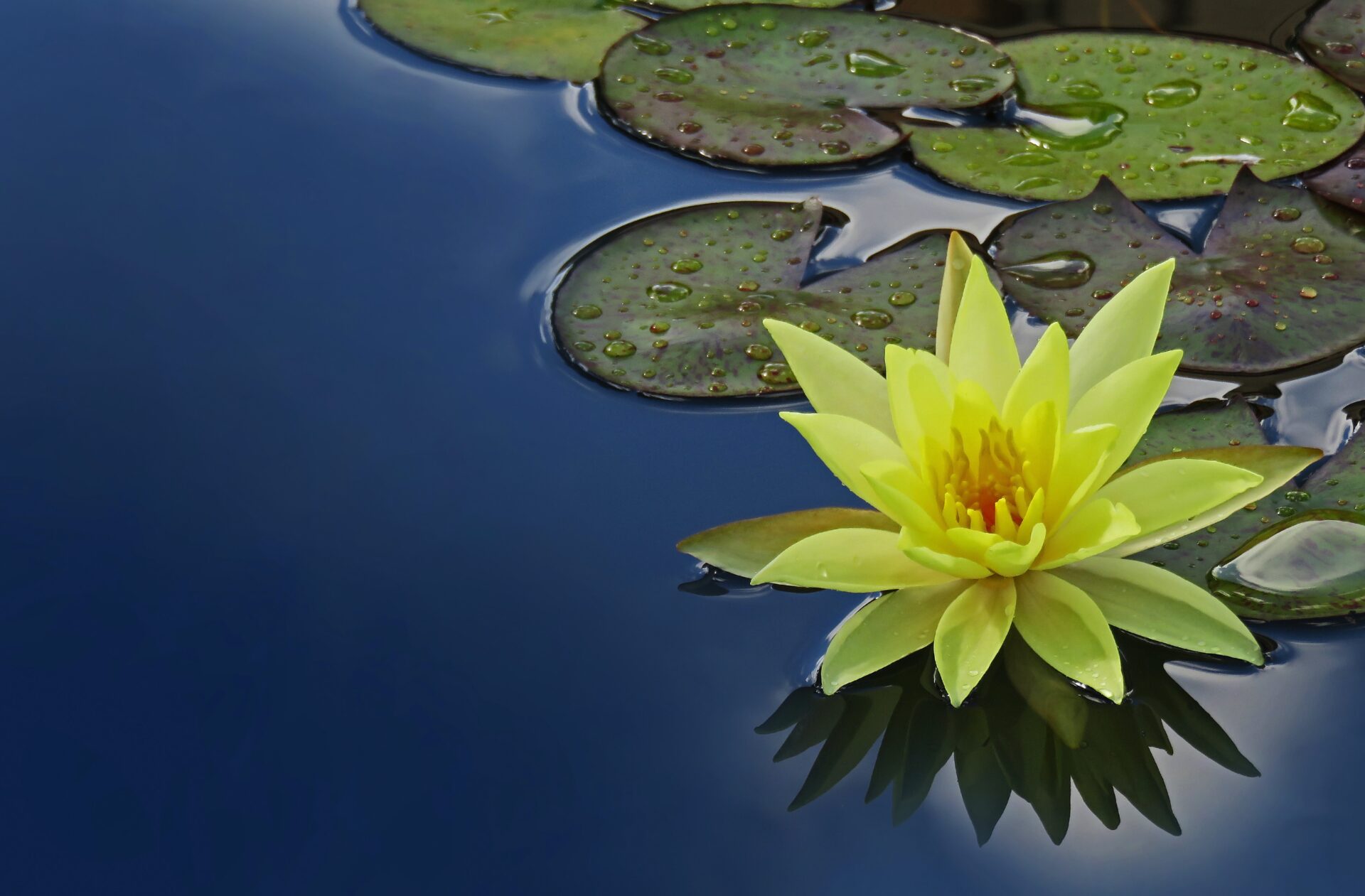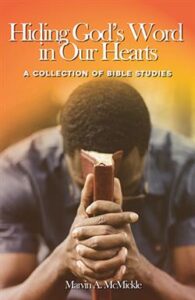
Waterlillies in a pond after a light rain.
Photo by David Clode on Unsplash
Thank God for green pastures
The Twenty-Third Psalm dramatically describes the places and the paths where the Lord leads people like a shepherd. One minute we are drinking from still waters and peacefully grazing in green pastures. The next minute we are traveling through the valley of the shadow of death in the presence of our enemies. One minute God is restoring our souls in quiet places where trouble seems far away. The next minute God is using a rod and a staff to defend us from attack or pull us away from danger. How wonderful it would be if the only thing we could expect was daily green pastures. However, that will never be the case for any of us. What is more likely is that the God who leads us in times of peace and rest also keeps and protects us when we are inevitably confronted by daily life’s harsh realities.
Let us always thank God when our path goes by way of green pastures and still waters. We should remind ourselves that not every day is full of hardship and heartache. Every day is not one calamity after another. In truth, we experience very few days in our lives when we cannot find multiple reasons to say, “Thank you, Lord, for all your blessings.” These words of gratitude do not mean our worries have ended or our challenges have been removed. Rather, it means that God refreshes us along the way with more blessings than we can count. The Lord, who is our shepherd, has a way of leading us to green pastures and still waters when we need them most.
 Keep in mind the tension between the long stretches of harsh desert and barren land through which shepherds must guide their flocks and the places where life-sustaining grass and water can be found. The shepherd leading us is not an image where the desert disappears, or the dangers of hunger and thirst have been eliminated. Instead, we see a shepherd sustaining a flock amid harsh realities. Most shepherds lived a nomadic existence where they had to lead their flocks from place to place to find food and water. The shepherd protected the flock from the dangerous world around them. But all the while, the goal was to find green pastures and still waters.
Keep in mind the tension between the long stretches of harsh desert and barren land through which shepherds must guide their flocks and the places where life-sustaining grass and water can be found. The shepherd leading us is not an image where the desert disappears, or the dangers of hunger and thirst have been eliminated. Instead, we see a shepherd sustaining a flock amid harsh realities. Most shepherds lived a nomadic existence where they had to lead their flocks from place to place to find food and water. The shepherd protected the flock from the dangerous world around them. But all the while, the goal was to find green pastures and still waters.
God does this for us all the time. Do not focus on the desert or the dangers. Remember and look forward to the times and places of calm and the moments of rest and renewal God provides for those who look to God as their shepherd. Between 2015 and 2019, I was hospitalized several times due to fluid buildup in and around my lungs. Doctors compared that fluid with the thick gunk that develops inside our cars’ motor oil that clogs up the engine and ruins the operating system. I was dangerously close to death on three occasions, unable to breathe, stand, or function. I was in the valley of the shadow of death.
If not for my time in the valley of the shadow of death, I would not fully appreciate how sweet life is amid green pastures and still waters.
Only when I realized how close I was to death did I begin to realize what miracles God kept working in my life as God brought me through those valleys. I was not exempted from suffering, sickness, or sorrow. I was sustained through them, and eventually, I was delivered from their grip. I went from three separate trips to an ICU bed to green pastures and still waters because the Lord is my shepherd. I was then left with the choice of either complaining about my sicknesses or continually thanking God for my healing. I have been in the valley of the shadow of death, and I have been led to green pastures and still waters. If not for my time in the valley of the shadow of death, I would not fully appreciate how sweet life is amid green pastures and still waters.
It is pointless to seek permanent residence in quiet places when living in a world full of trouble and turbulence. Our response to hardships in life should never be “Why me?” Such a question implies that we think we should be exempt from the travails of all the other people on earth. The Bible is full of people who knew hardships. Why should our lives be any different from Naomi, Jeremiah, Job, Mary the mother of Jesus, or those heroes of the faith listed in Hebrews 11 who endured much hardship? If not for David’s danger at the hands of Saul or earlier in his life defending his father’s sheep, we would have no Twenty-Third Psalm.
A better question is “Why not me?” Other people contract cancer or other life-threatening diseases. Why not me? Other people face crises in their family circle. Why not me? Other people cope with times of financial uncertainty. Why not me, and why not you? Jesus relieves us of any doubt about this when he says in John 16:33, “In this world you will have trouble.” However, in that same verse, he then injects hope and assurance when he says, “But take heart! I have overcome the world.” This is what makes it possible for the Lord to be our shepherd; Christ has overcome the world. First John 4:4 was the verse I first received from my grandmother, born in 1878, one generation removed from slavery in Kentucky: “The one who is in you is greater than the one who is in the world.”
Sometimes, I catch myself humming and singing a song passed down by my enslaved ancestors in the spiritual “Hush, hush, somebody’s calling my name.” These lyrics helped them endure the valley of the shadow of death, and they do the same for all who walk by faith: “I’m so glad trouble don’t last always.” That is because the Lord is my shepherd, and I shall not want.
I’m so glad trouble don’t last always,
I’m so glad trouble don’t last always,
I’m so glad trouble don’t last always,
O my Lord, O my Lord what shall I do?[i]
Dr. Marvin A. McMickle is interim executive minister, Cleveland Baptist Association, American Baptist Churches, USA. He served as president of Colgate Rochester Crozer Divinity School, Rochester, New York, from 2011 to 2019. Reprinted from Hiding God’s Word in Our Hearts: A Collection of Bible Studies by Marvin A. McMickle, copyright © 2023 by Judson Press. Used by permission of Judson Press.
The views expressed are those of the author and not necessarily those of American Baptist Home Mission Societies.
[i] African American Spiritual, “I’m So Glad Troubles Don’t Last Always,” public domain, Hymnary.org.



